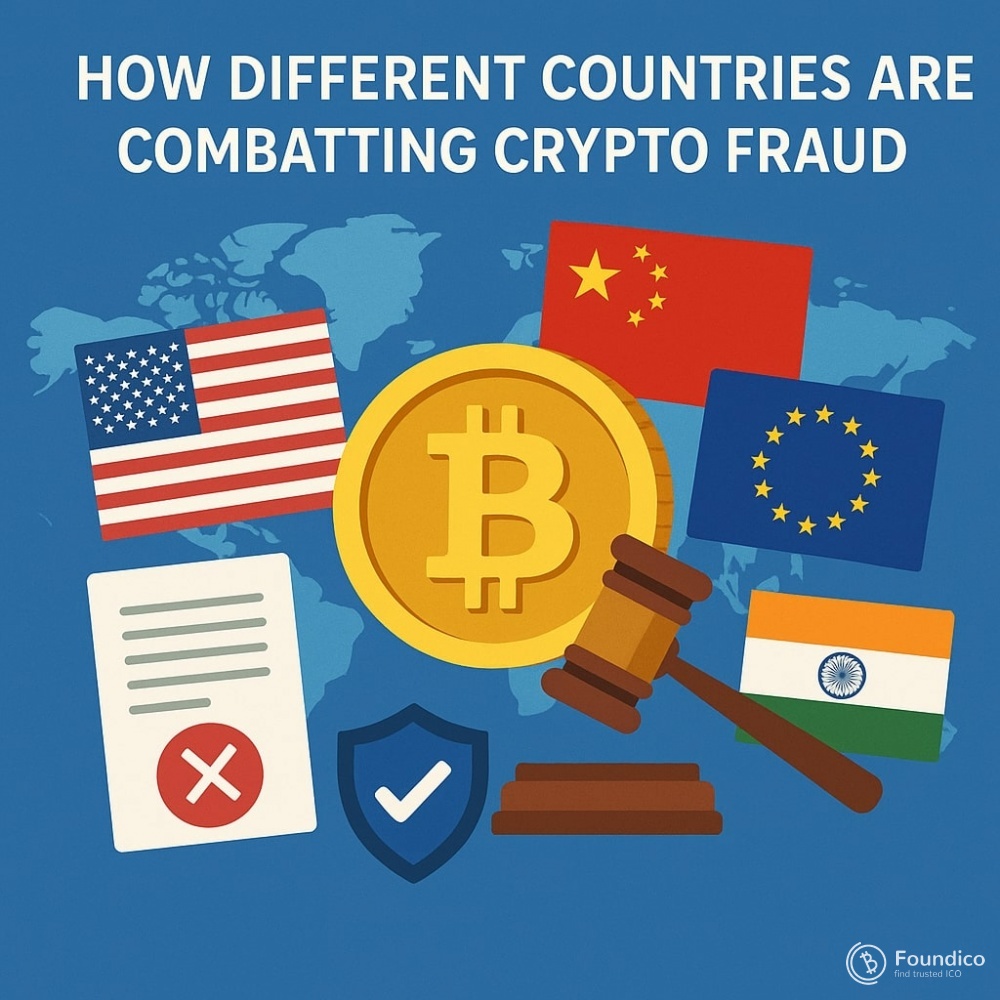How Different Countries Are Combatting Crypto Fraud

By Dr. Pooyan Ghamari – Swiss Economist and Visionary
Introduction: A Global Challenge in a Borderless World
Cryptocurrency has revolutionized finance by enabling decentralized, peer-to-peer digital transactions across the globe. Yet this borderless nature also presents a unique challenge: crypto fraud can easily transcend national boundaries, complicating efforts to regulate and prosecute offenders. Governments worldwide are recognizing the urgent need to combat crypto fraud through diverse regulatory approaches, enforcement mechanisms, and international cooperation.
This article explores how different countries are addressing the scourge of crypto fraud, highlighting varied strategies and the evolving global landscape.
1. United States: Aggressive Enforcement and Regulatory Clarity
The United States has adopted a robust stance against crypto fraud, leveraging multiple regulatory bodies:
-
The Securities and Exchange Commission (SEC) prosecutes fraudulent ICOs and securities violations.
-
The Commodity Futures Trading Commission (CFTC) addresses manipulation in crypto derivatives.
-
The Federal Trade Commission (FTC) actively warns consumers and pursues scam operators.
-
The Financial Crimes Enforcement Network (FinCEN) enforces AML and KYC compliance.
High-profile crackdowns on projects like BitConnect and OneCoin demonstrate the U.S. commitment to deterrence. Recent guidance clarifies the applicability of existing laws to crypto assets, increasing legal certainty for market participants.
2. European Union: Harmonized Regulation with MiCA
The European Union is pioneering comprehensive regulation with its Markets in Crypto Assets (MiCA) framework, expected to take effect soon. MiCA aims to:
-
Set clear rules for crypto service providers.
-
Mandate AML/KYC compliance.
-
Require transparency in token issuance.
-
Empower regulators to enforce anti-fraud measures.
This harmonization across member states addresses the fragmented regulatory landscape, enabling coordinated responses to fraud while supporting innovation.
3. Switzerland: The “Crypto Valley” Model of Regulation and Innovation
Switzerland’s approach combines innovation-friendly policies with rigorous compliance. The Swiss Financial Market Supervisory Authority (FINMA) categorizes tokens, applies AML laws, and licenses crypto exchanges. The Zug Crypto Valley ecosystem benefits from clear legal guidance, balancing investor protection with business agility.
FINMA’s willingness to engage proactively with crypto projects fosters transparency and deters fraudulent schemes, making Switzerland a global compliance benchmark.
4. Singapore: Proactive Licensing and Consumer Protection
Singapore’s Monetary Authority of Singapore (MAS) leads with its Payment Services Act, requiring crypto businesses to obtain licenses that enforce strict AML/KYC rules and cyber hygiene standards. MAS also runs public awareness campaigns about common crypto scams.
By combining regulation with education and swift enforcement, Singapore minimizes fraud risks and builds public trust in digital finance.
5. China: Comprehensive Ban and Strict Enforcement
China has taken one of the most stringent stances by banning all cryptocurrency trading and mining activities outright. This sweeping prohibition aims to eliminate crypto fraud and financial risks by removing access to speculative crypto markets.
Though effective in curbing onshore scams, the ban has pushed some activity offshore, challenging enforcement efforts and highlighting the limitations of prohibition as a strategy.
6. South Korea: Strong AML and Surveillance Frameworks
South Korea enforces tough AML/KYC requirements for crypto exchanges, requiring real-name accounts and mandatory reporting of suspicious transactions. Its Financial Intelligence Unit collaborates internationally to track and prosecute fraudsters.
South Korea also uses blockchain analytics extensively to detect irregularities, reinforcing a compliance culture that supports investor protection.
7. Emerging Economies: Balancing Innovation and Risk
Countries in Africa, Latin America, and Southeast Asia face the dual challenge of fostering crypto innovation while protecting vulnerable populations from scams. Many have introduced basic regulatory frameworks and partnered with international bodies for capacity-building.
For instance, Nigeria’s Central Bank has issued warnings and guidance, while countries like Brazil and Mexico are drafting tailored crypto laws focused on fraud prevention.
8. International Cooperation: The Key to Combatting Borderless Crime
Since crypto fraud frequently involves cross-border transactions and actors, international collaboration is essential. Organizations like:
-
The Financial Action Task Force (FATF) set global AML standards.
-
Interpol facilitates law enforcement cooperation.
-
Regional bodies encourage information sharing and joint investigations.
Such cooperation improves asset recovery, extradition, and the harmonization of legal standards necessary for effective enforcement.
Diverse Strategies for a Unified Goal
Countries vary widely in their approaches to combatting crypto fraud, reflecting differences in legal traditions, market maturity, and policy priorities. From the U.S.’s aggressive enforcement to China’s outright bans, and Europe’s harmonized frameworks to innovation-friendly Swiss regulation, the global patchwork of responses is evolving rapidly.
The future of crypto fraud prevention depends on balanced policies that combine strong compliance, public education, technological innovation, and international collaboration. Only through such integrated strategies can the promise of cryptocurrency be realized safely and sustainably.
Dr. Pooyan Ghamari is a Swiss economist and visionary specializing in international finance, regulatory policy, and digital asset governance.
